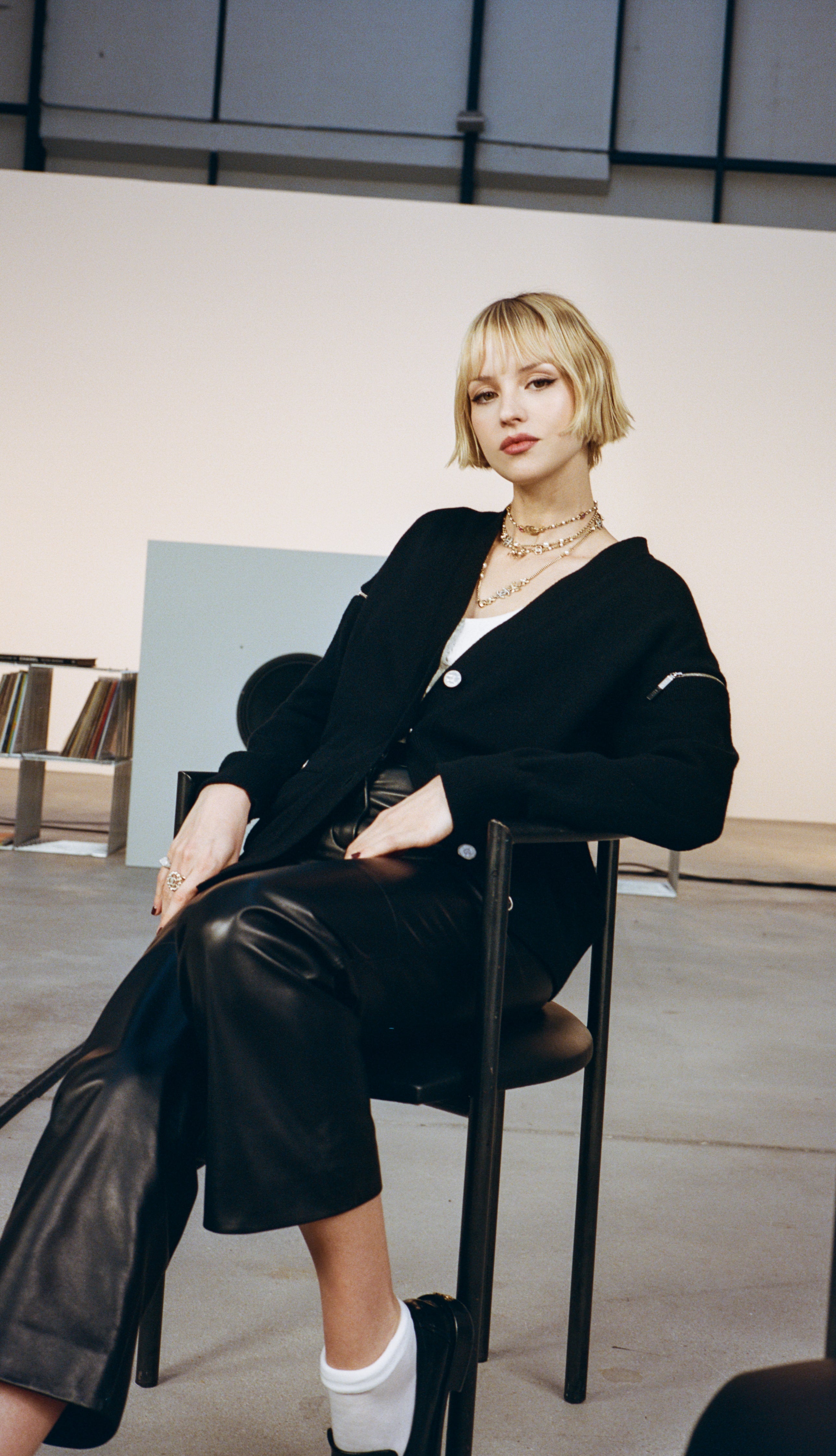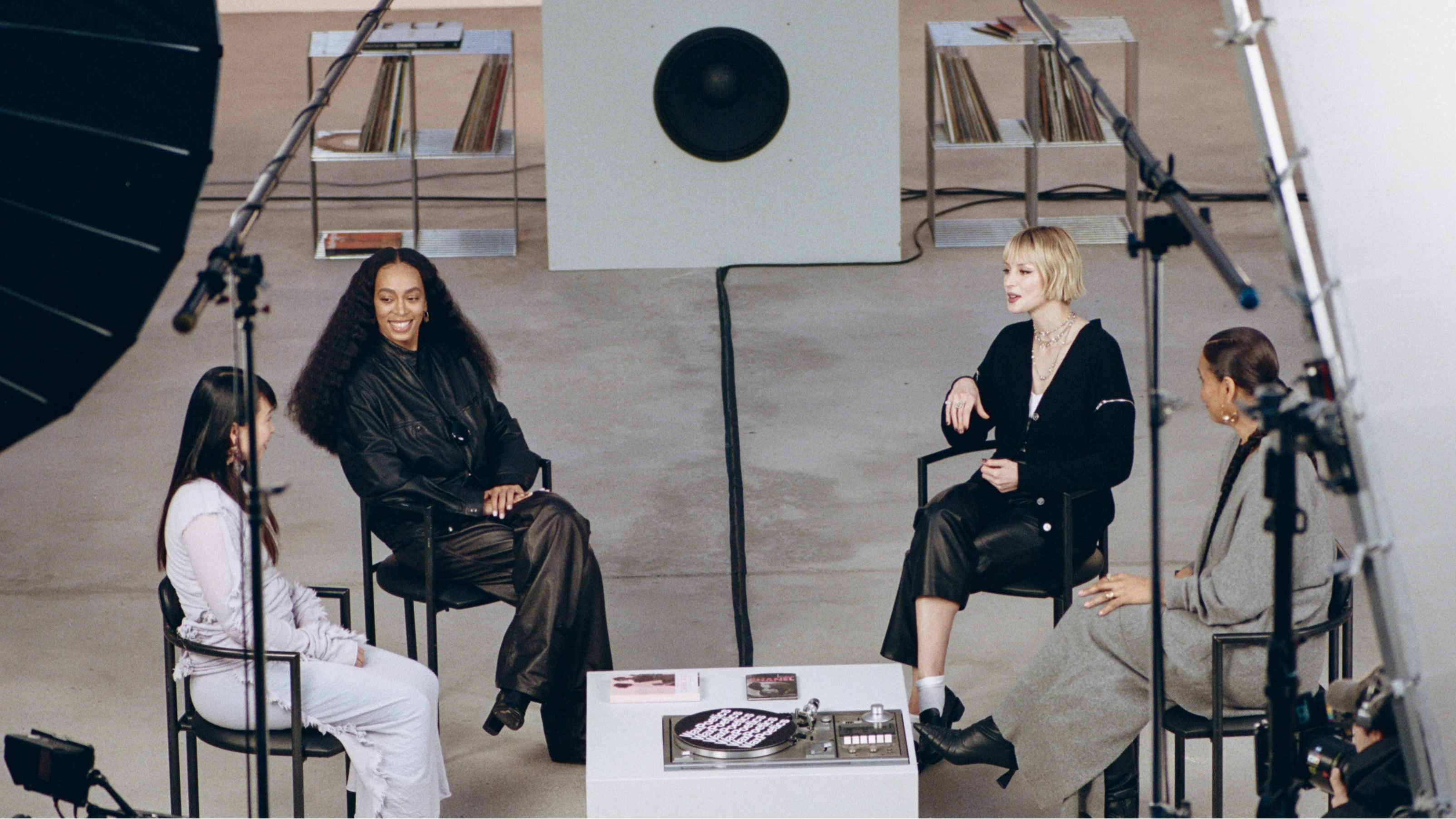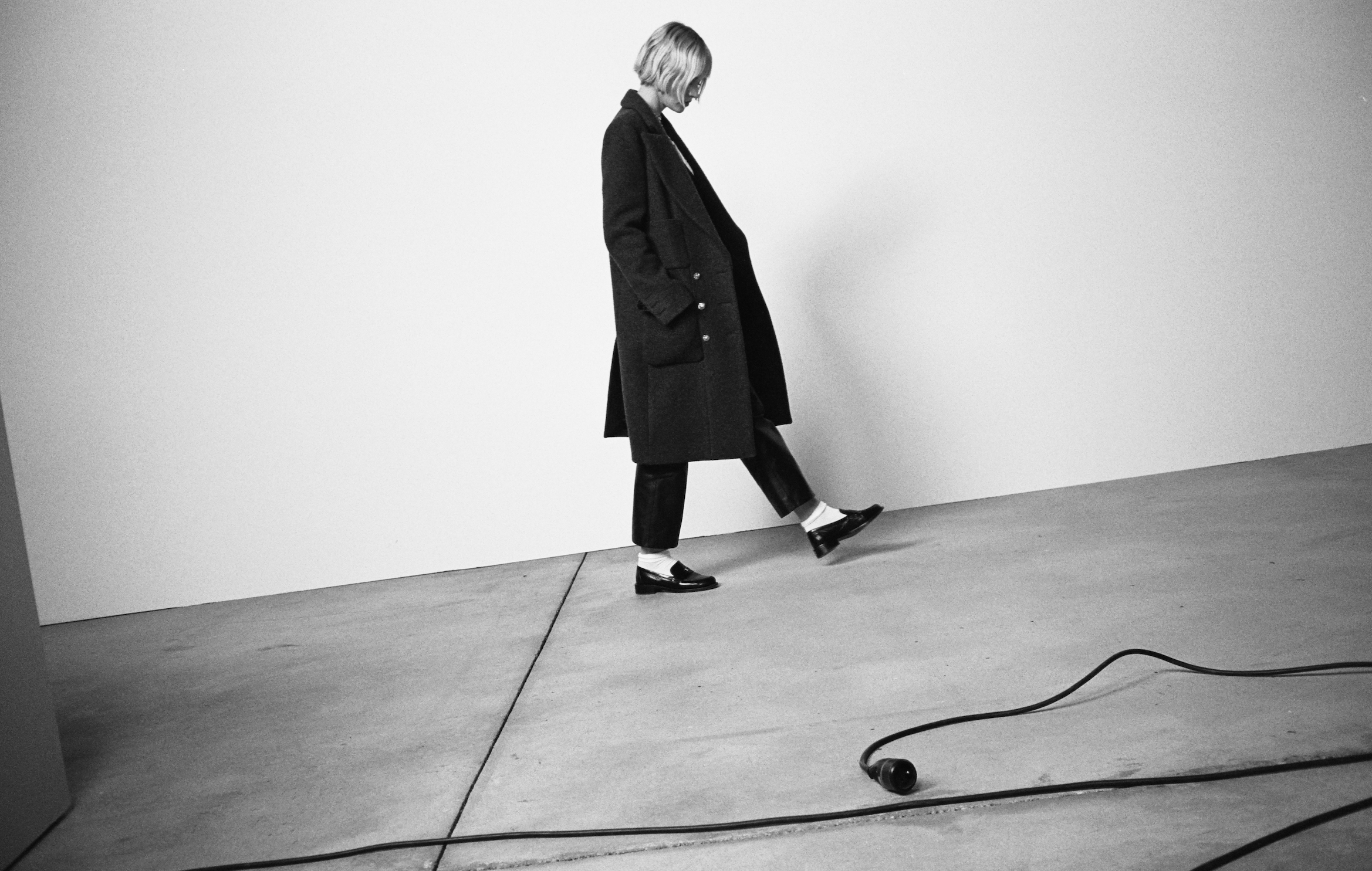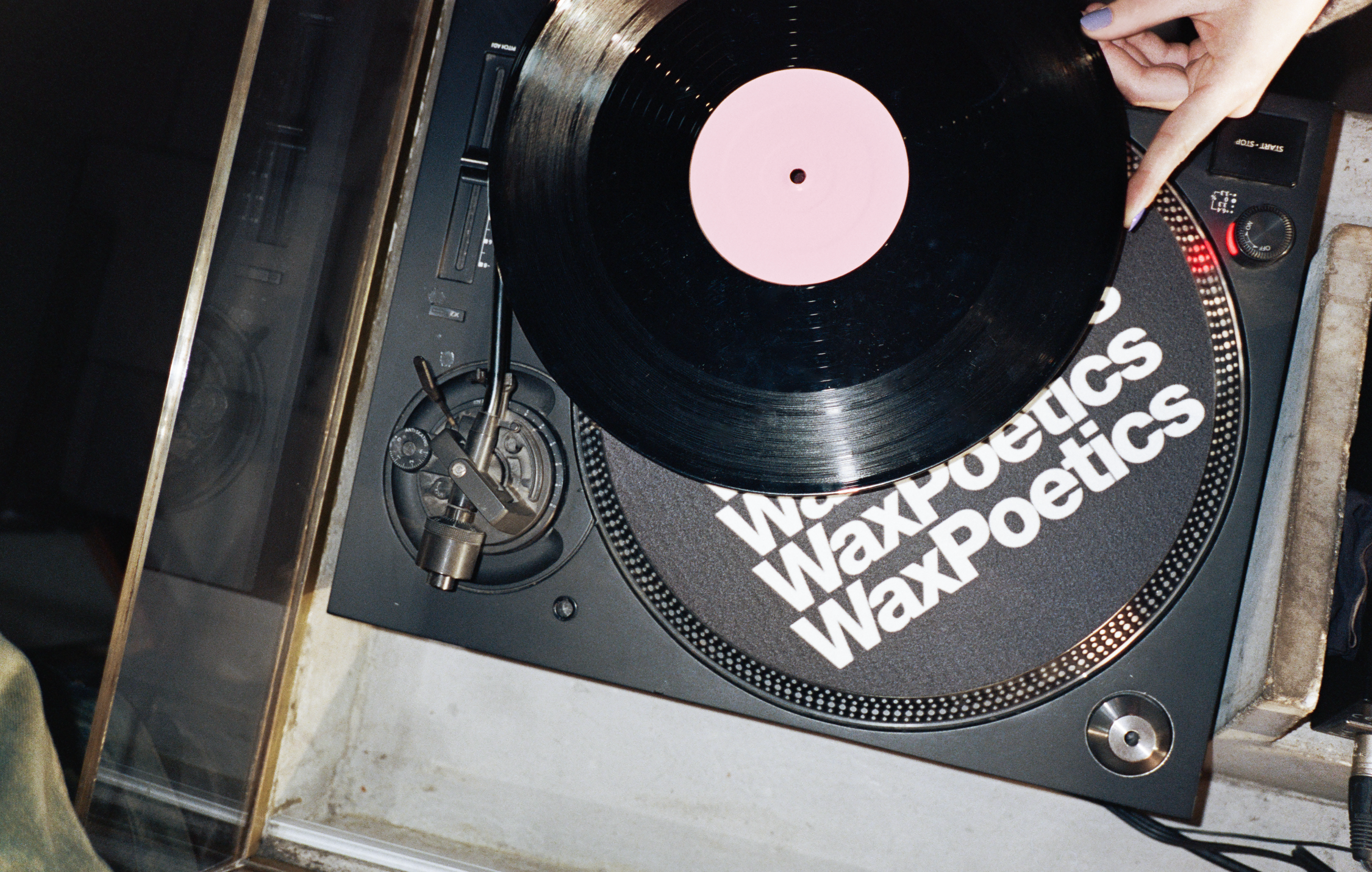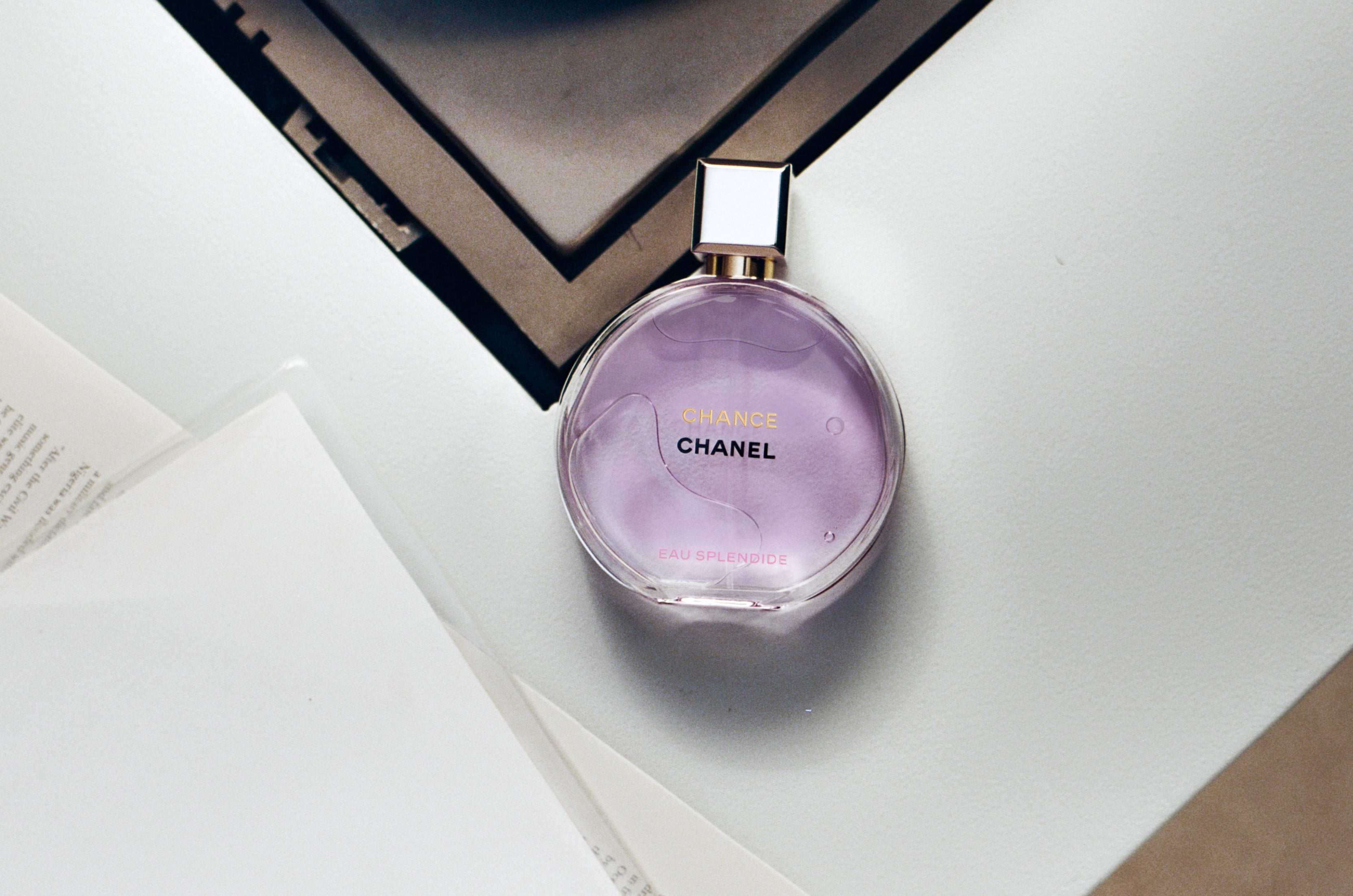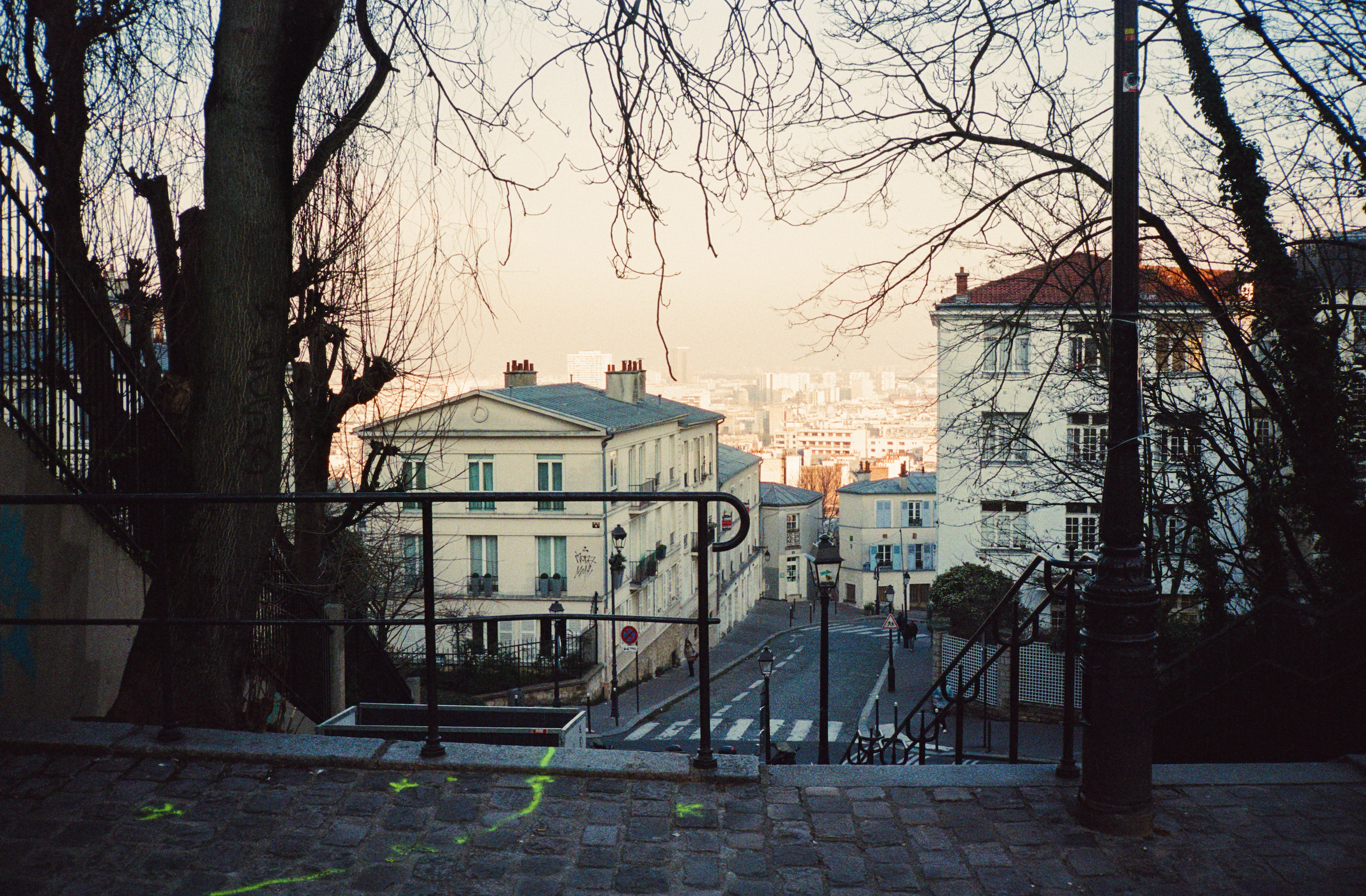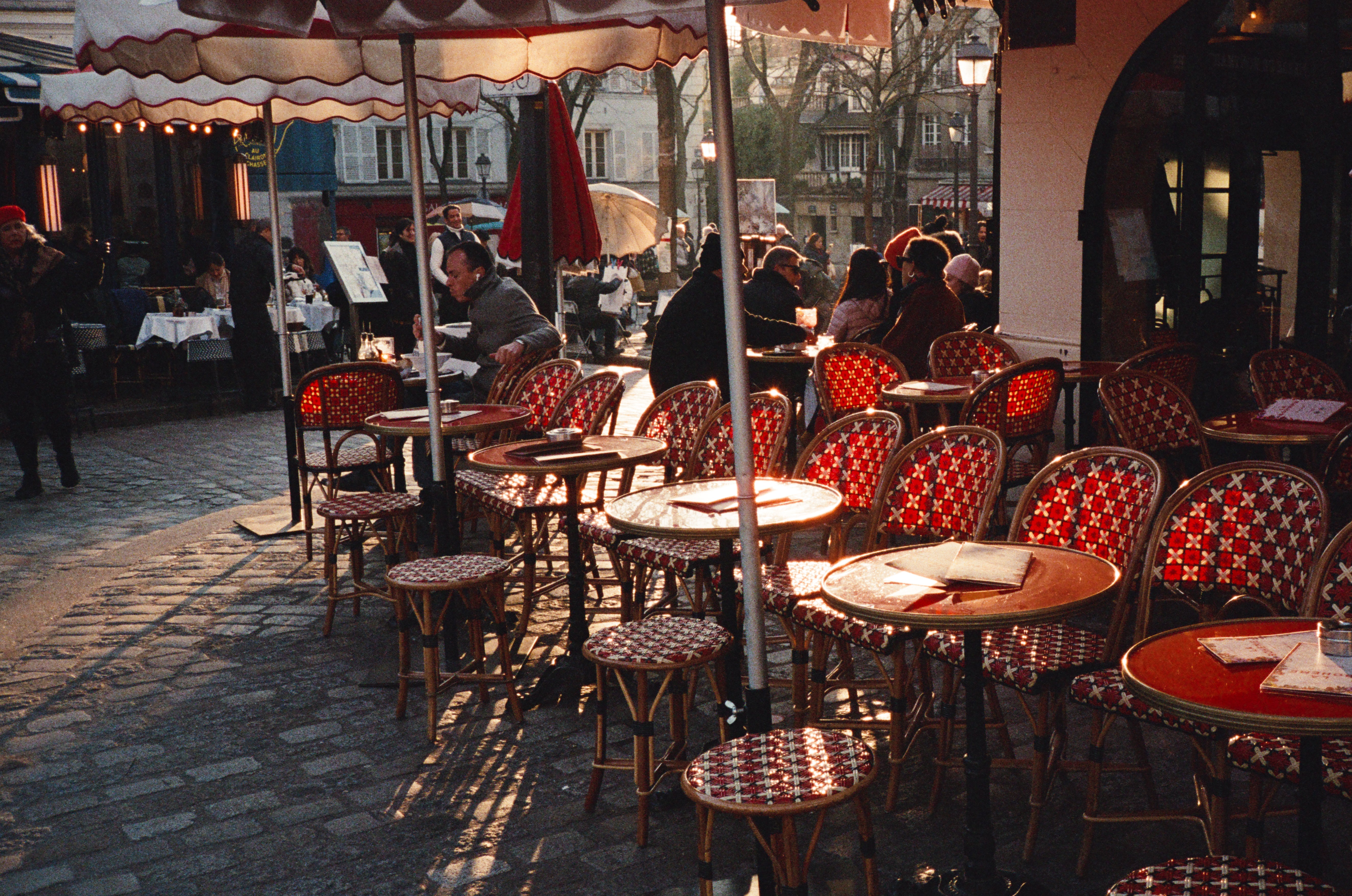Part one
Since 2001, Wax Poetics have been a vanguard in the celebration of cultural innovation, artistic expression and music scholarship. Chanel has been key in turning style into an artform, all the while constantly emphasising the heritage ethos of Gabrielle Chanel – the brand’s legendary founder who revolutionised women’s fashion in the early 20th century and inspired the latest Chance fragrance.
To celebrate the launch of Chance Eau Splendide, Wax Poetics and Chanel have joined forces to explore life, art and creativity through the lens of music and fragrance.
As part of the bespoke editorial series we curated a one of-a-kind conversation between Angèle, Neneh Cherry, Solange and Yukimi Nagano. Each artist brings forth their unique backgrounds and experiences; creating a rich tapestry of perspectives that through it all champions artistic integrity and an aversion to convention.
In the first of three exclusive Q+A’s to explore themes on taking a chance in the music industry, we are invited to witness these remarkable women break bread and reminisce on their storied careers. Exploring how the concept of chance intersects and shows up in a myriad of ways through their lives and through their art.
FEATURING...
Watch the full film here
Q&A
Can you give an example in your careers where you had to be audacious and take a chance?
Angèle – That’s a beautiful question. Who wants to start?
Solange – Well, I want to start by just saying that I'm such a huge fan of you ladies, and have been so inspired by your work and your presence in music. So, it really is an honour to share space with you guys today.
Neneh – I really feel very honoured to be in this space. Many times, you've [Solange] just kept me going. What you’ve put into the world is hopeful, beautiful and timeless.
Solange – That’s incredible to hear from the legend.
Neneh – I thank you. So, who's going to bust the first question?
Wax Poetics – Neneh, I just think throughout your entire career you’ve been taking a chance. From the get go with ‘Raw Like Sushi’, so do you want to elaborate on that?
Neneh – Even before ‘Raw Like Sushi’ actually. Obviously, that's maybe a kind of pinnacle and place where a lot of people started to know me in a different way, but I was in bands before that. I was in a band for a little while called The Slits which was an all-women band, and the singer, Ari [Up] was my really close friend. I actually feel like stepping out into that kind of unknowing space and being really terrified, but feeling harnessed by the musicians and the people I was with kind of almost came before I started putting out my first music. Then with this group Rip Rig + Panic which was a kind of wild card. The first time I went in the studio, Gareth and Sean, who were Rip Rig + Panic, had this other group called The Pop Group, and they literally called me up in New York. I'd gone back to New York. I was already living in London and I was in the bath. The phone rang and I heard my mother like “oh yeah, she's here”. I got on the phone, and it was Gareth phoning from London, asking me if I would come and sing with Rip Rig + Panic. I was like “I don't know, let me call you back”. I went and got back in the bath, and I was just kind of lying there. I mean, I was 16. I'd of course, grown up in a world of music; my dad was a musician, but I didn't really know where I was going. And that moment lying in the bath, I guess in a way was like a turning point. I think I got out of the tub and just phoned them back, and I was like, “yeah, I'm coming”.
I went back in the tub and just laid there. We went into the studio a few days after I got back to London. We went into the studio, and I'd never really recorded anything. I said “I don't know if I can do this” and Gareth was like “you’ve got this”. I'll never forget that moment of hearing the music. It was this quite hard tune called ‘Go Go Go (This Is It)’. As soon as the music went up my spine, I knew what to do, and the power of the music just led me. I feel like that’s been a continuous thing on my journey.
Solange – [laughs] I love how you got back in the tub.
Yukimi – You had to be brave to listen to that gut feeling and just do it.
Neneh – And trust it. I think that you have to work at your craft and your gifts, but also remain open to that pure, honest energy that exists inside the spirit. I think that's why I still get very nervous about things, because I feel like you don't actually own that aspect. It's more like we're in training to remain open enough to receive, to be able to find it. A bit like a holy ghost sometimes.
Solange – Yes, this is true.
Neneh – But you've also got to be able to go through. I hate the concept of just going through the motions. I think that's why I've been quite allergic to some things in mainstream music. I've been terrified of falling into the entrapment. That was a very long answer. Somebody else take the floor.
Wax Poetics – Solange, I’d say your second album ‘Sol-Angel & The Hadley Street Dreams’ was a turning point for you creatively and where you came into your own as an artist. Elaborate on that.
Solange – I actually feel like my first record [Solo Star] was pretty brave. I think that a lot of people look at it through a wide lens of it being a pretty pop album, but I was also a teenager. I was 14, and I would go into the room with Pharrell, Timbaland and these giants and be like, “I'm writing my own music, I have something to say”. Sonically I listen back to it, and it's much more experimental and adventurous than it was packaged to be. I can hear these parts of myself that are still very much with me today. I feel like there were some brave moments there lyrically. I also feel like as a teenager, you're writing from such a raw and honest place that I feel like lyrically, I still haven't upped a lot of things that I said. It's like poetry.
Neneh – Because it's unfiltered in a way.
Solange – Lyrically, there was a lot of audacity there, and then I guess my last record [When I Get Home] as well. I know it was definitely a risk in that I had a lot of really profound experiences with repetition. I was listening to Steve Reich and composers who used a lot of repetition. I was choreographing with a lot of repetition, and it was a way that I would create stability and ground myself. Sometimes, you say something one time you're not really convinced. You say it a second, a third, a fourth, a fifth time, it becomes a mantra. It becomes something that you're speaking into existence. So, on a song, like ‘Things I Imagined’, opening my record with saying “I saw things I imagined” 40 times, I knew that people would probably turn on the record and be like, “Okay, girl, we get it. You saw things you imagined.” But over time, it's been really beautiful to see how much that repetition resonated with people and the album itself. When it first came out, it was really shocking to the palette coming off of ‘A Seat At The Table’, and now, people come up to me all the time and say that’s actually their favourite one. It was scary that night pressing send. Knowing that it would be a very divided reception. But like you said, just sort of following that pulse and that gravity in your stomach with conviction. When you know that is the path that you have to take. So, I feel really grateful that no matter how long it took, that it really connected with people on a deeper level than just music and lyrics.
Neneh – I think there’s an underestimation sometimes. You hear people going “no one’s going to get that”. I feel that it undervalues the intelligence and the need of human beings.
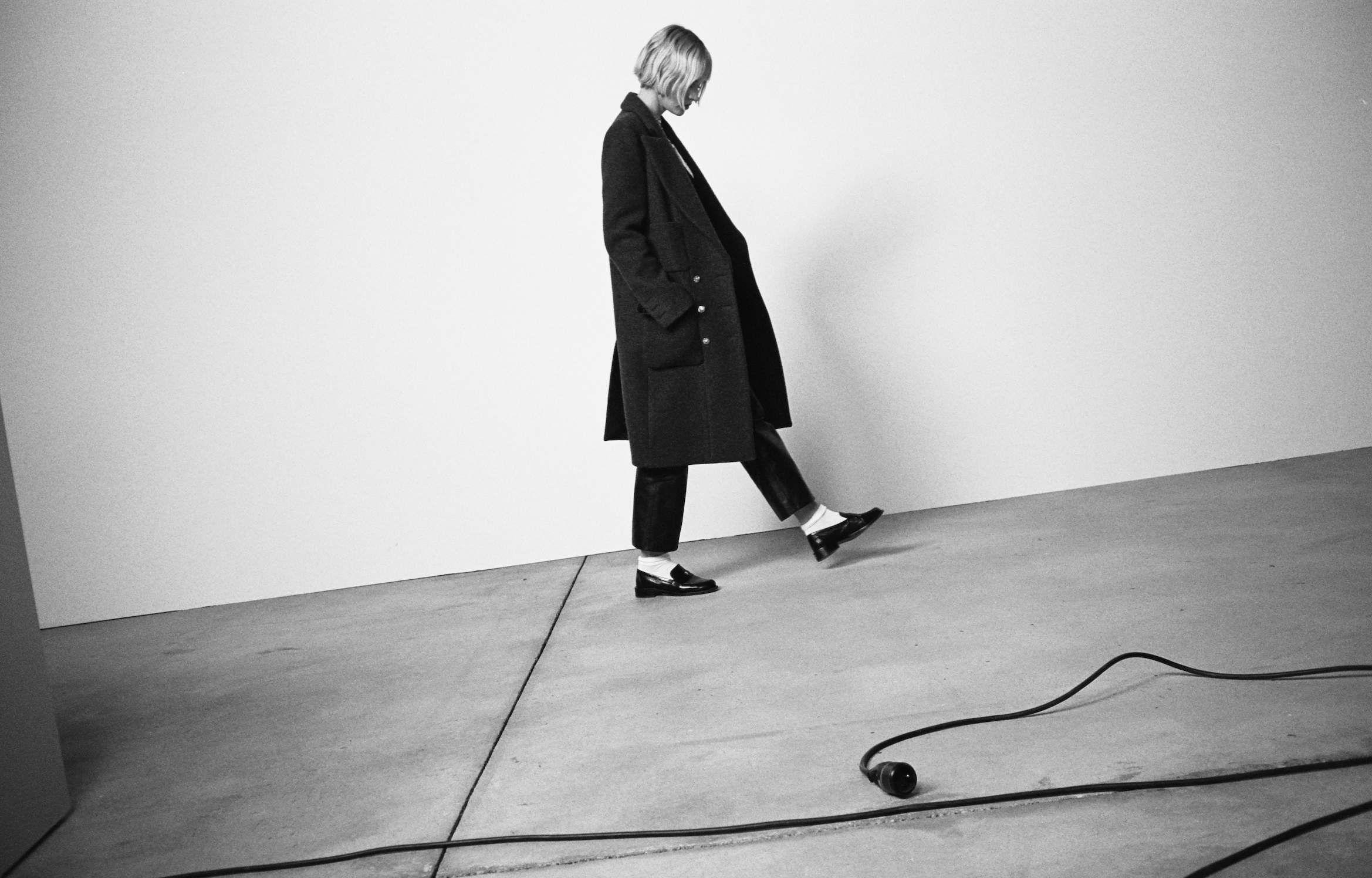
"My first record, I was more bold and also more maybe naive, in a way. But sometimes I miss this, the feeling of being a teenager, not really caring about who's going to like the record, or who's going to like my music."
Angèle – It’s important not to underestimate the audience and the fact that they can understand and follow where you want to go. Even if it's not the easiest music to understand or the most mainstream music. I think that the people will always get that you're honest and that you're following your instinct or your intuition. And it's something that sometimes I felt like I was losing a little bit. My first record, I was more bold and also more maybe naive, in a way. But sometimes I miss this, the feeling of being a teenager, not really caring about who's going to like the record, or who's going to like my music. I just wanted to express myself, but I feel like after that, I was like I have to do music that's more compact and easier to get. But the bolder it is and the crazier it is, sometimes the better, because it's more honest.
Neneh – You feel the heart and the heart's there, it's almost like you can go back. I think about the music that I listen to. I mean, I love discovering new music, but then I also have music that I've been listening to my whole life. And it always brings me new things. You hear new things, but sometimes it's just resonating with old feelings in a new space. It’s interesting.
Yukimi – The repetition, I feel like, let's music sink in. People are so restless, especially when you make music. It's like, “oh, this needs to happen”, and there's a kind of script to writing a song. The repetition is something that I really appreciated in your [Solange] music because there is that sense of it taking down the pace. I think that's maybe something that I personally feel like I need more than anything in life. Mentally and physically, just taking down the pace. Sometimes thinking almost in terms of what you need yourself as a human is what all of us need. Breaking down that sort of stress about what's the chorus and what's the bridge? All that’s good, you can use that, but break free from that a little bit.
Neneh – I get where I want to go and start a riot with people who are like “you have to do it like this. You have to do it like that”. It’s deep. You know, music's a very powerful medium. Actually, this morning, I was lying on my bed, and I had a little radio in the hotel room that was set on a jazz station for effect as you walk in the room. I just left it there, and a Dinah Washington song came on, and I love her so much because she does something. There's something in her voice, in the grit, she's very gritty. I was just lying there, bleeding a little bit from my heart. Just feeling and thinking, I guess, leading into this conversation that we're going to have about the language of music. The subliminal, or not subliminal, but the feelings that music and sound evokes. I feel like it's beyond language.
Solange – It is. It carries smell. It carries sight. I think about your [Yukimi] song ‘Feather’, and I can recall myself in so many spaces having such incredible freeing moments to it. If I were to hear it now, I am back in my 20s at this bar, like I can imagine everything. That is just such an incredible gift and tool that we get to be as transporters of time and space in that way.
Angèle – It’s also something that cannot be truly seen, because it goes a lot with the memory and with the senses. I love that music can really bring you somewhere, or to a very precise memory. It can really transport you.
Neneh – It's beautiful. I really hear what you're saying about all of us needing to kind of slow down. The world is out to lunch. It's so bad. I think a lot of us are actually stressed out. Life is hard, and you know, obviously some things are better than they were, but we're definitely in a place where it's just [deeply exhales].
Solange – Our nervous systems are not supposed to be moving that quickly. We're also not supposed to be producing work that frequently on that scale. That’s definitely something I feel like I struggle with; the demand of music. I think typically I have like, a five-year break in between records, which seems sort of ancient in today’s time.
Neneh – I took 17 years. I didn't mean to! [laughs].
Angèle – Five years maybe seems a lot for people that listen to you, but it also makes total sense. It's a lot of work, and you have to live things, to be able to connect first with yourself and with your own emotion, and then to be able to share it to the people. The way you want to share it, and taking the time to do it. I think it's beautiful when I wait for a new record to come out. I'd rather wait years and listen to the album where the artist is fully proud of himself, of herself. Rather than listening to a new album every week. I like the time that artists are putting in their work. I think it's beautiful. It's also a little lesson in a way.
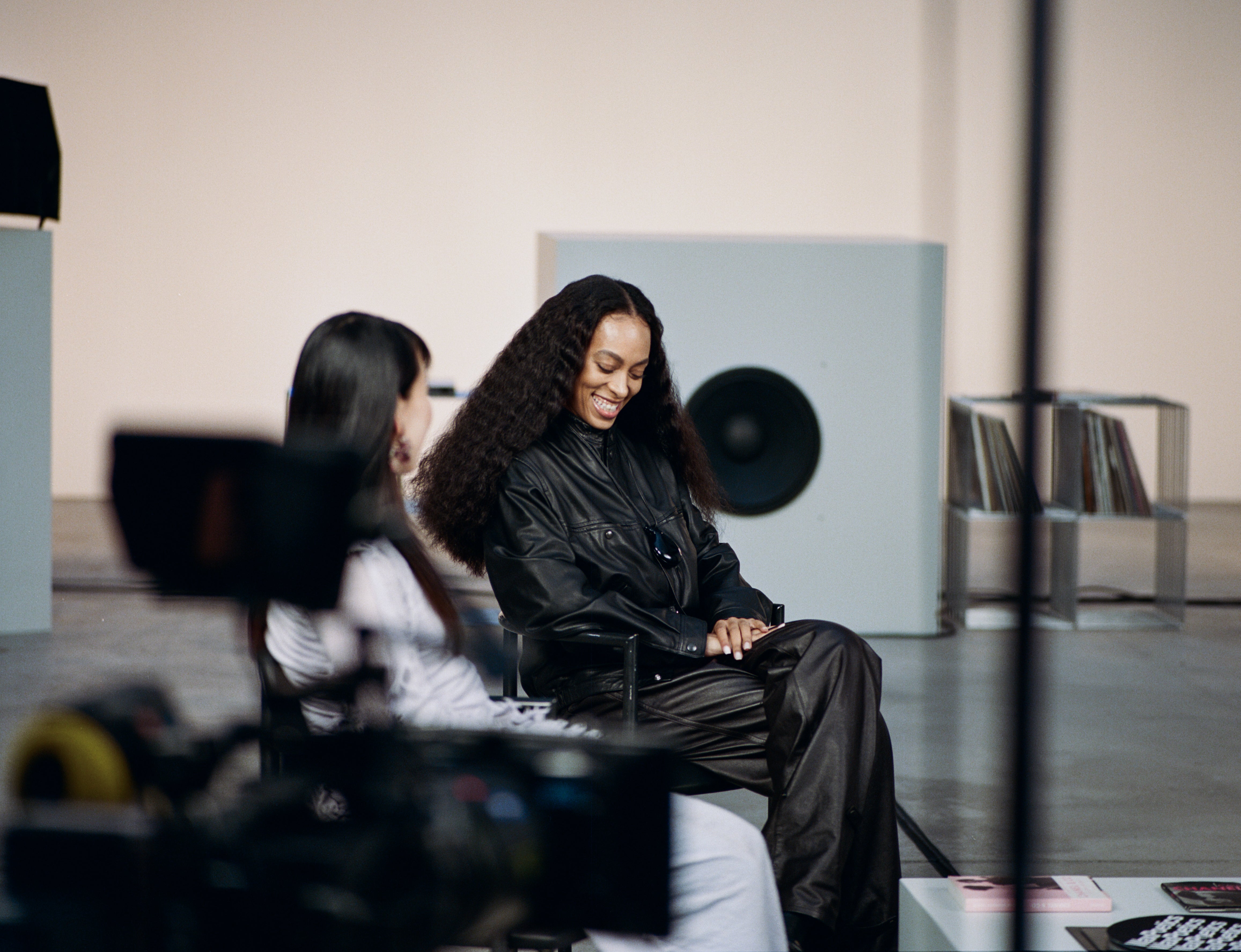
"It carries smell. It carries sight. I think about your [Yukimi] song ‘Feather’, and I can recall myself in so many spaces having such incredible freeing moments to it. If I were to hear it now, I am back in my 20s at this bar, like I can imagine everything."
To what extent has chance had an impact on your career?
Yukimi – I sort of knew early on that I wanted to work with music, and that I wanted to write. As I was sort of finding my way, I wrote the first album with my friends [Little Dragon]. We weren't really planning anything, we were just writing music, and having fun. I was probably the one who was the most ambitious, I was like “I'm a star”. It was my album actually, the first album. It was going to be under my name. I was trying to find my way and I was working with a bunch of different producers. I ended up working with some producers in Stockholm who were big names for six months. I was probably 22 or something at the time, and completely oblivious to the fact that the studio was costing and they were paying for my apartment. Suddenly they're like “we just need you to sign this contract because we just need to get that over with”. There was this kind of urgency and I signed every page with no lawyer, no manager; nothing. Suddenly, I was offered a deal with my friends and my band. I sort of had to have a moment where I had to face these guys. I sat down at a table with them, and I said, “it's not going to happen. I'm going to release this music, because we [Little Dragon] got a deal. They looked at me and said “you're not going to sell anything, and you got to pay everything back”. So that was a big chance for me, because I had to be brave in a situation. It maybe sounds like a little thing, but for me, it took so much bravery, because I was nobody, and they were somebody. It was a bit of a chance, because I had to believe in this, and I kept trying to push them into my own thing. And suddenly, when I got that belief from a label, I believed in it even more because it wasn't just about chasing that song or whatever it was that they felt that I needed, that was missing. So, I think that was a bit of a big chance for me.
Solange – I feel that me becoming an artist was all sort of happenstance. I actually wanted to be a ballet and contemporary dancer. I studied from five until thirteen and I made a junior company in Houston. It was a big deal; this was my trajectory. I was going to go to Juilliard, it was all planned out. I went on tour with Destiny's Child as a background dancer. One of their dancers got pregnant, and they said, “Oh, my little sister knows how to dance”. I ended up tearing my meniscus maybe a year and a half in, so, I started to write emo songs about how my life was over because I wasn't going to be a ballerina anymore, and that's how I started writing songs. Kelly from Destiny's Child, then heard me in the back of the bus writing this song. She was working on an album at the time. She was like, “these songs are really good. I want you to write on my album”.
Neneh – Oh wow. That’s cool.
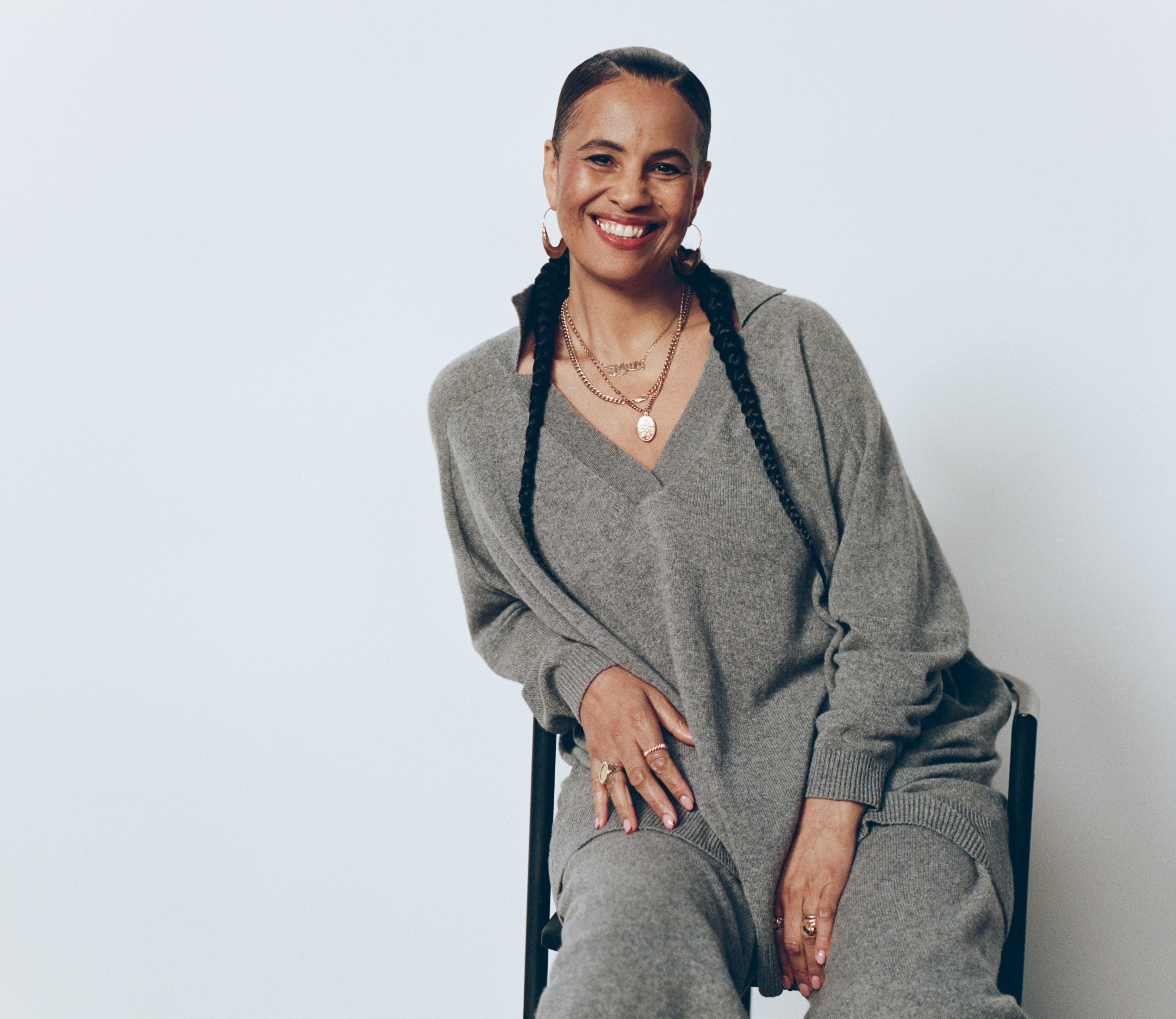
"We were just doing our thing. A little bit of rap, a little bit of this, a little bit of that. That record just started to lead its own life."
Solange – My first song placement was actually because of her belief and faith in me. That's how I kind of stepped into songwriting. I signed a publishing deal. I started to write for a number of other artists, and then my songs started getting a little weirder, and people weren't buying them [laughs]. So, then I said, I have like 20 of these songs, maybe I'll put them out, but I absolutely did not think about the undertaking of being a public figure, an artist, a touring performer. All of those things I had to really define so I could stay authentically me. The songwriting was easy peasy, but the other stuff? I was like, “I don't know about this shit”.
Neneh – I mean, it's really hard, very hard. I grew up in a creative family, and we moved around as a family. So, my parents were committed to the idea of trying to convey with their music what they called “organic music theatre”, so we were there. I had my first child when I was 18.
Solange – Aww same. I didn’t know we shared that in common. Okay. Babies having babies [laughs].
Neneh – My mother said to me kind of early on, “don't separate this life that you're making. You know you're a creative person. You're going to be a mother. Just try and think of it as a whole life”.
Yukimi – I wanted to ask you about that actually because I have this picture in my head of the video of you being pregnant. At that time as well, that, to me, is very brave. Did it feel brave to you?
Neneh – It wasn’t planned. In a way it was kind of oddly empowering. Especially as a young woman having a record like ‘Buffalo Stance’ which just started to become successful.
Solange – Iconic.
Neneh - We were just doing our thing. A little bit of rap, a little bit of this, a little bit of that. That record just started to lead its own life. It took me into this other room, where all of a sudden, I was going to do Top Of The Pops, and I was seven months pregnant. There was a point early on, just when I was about to sign my contract where I got pregnant, I was like, “is this okay?” I was with a friend who was actually dying of AIDS, and he was like, “I'm on my way out”. I really felt this was meant to be. This life is coming before the next.
Solange – Rest in peace to your friend.
Neneh - Then it was like, of course I should be having this baby. What I was trying to say was, it was actually kind of empowering, because I was also terrified of being swallowed up by this weird world so I felt like “this is what's happening now in my career”.
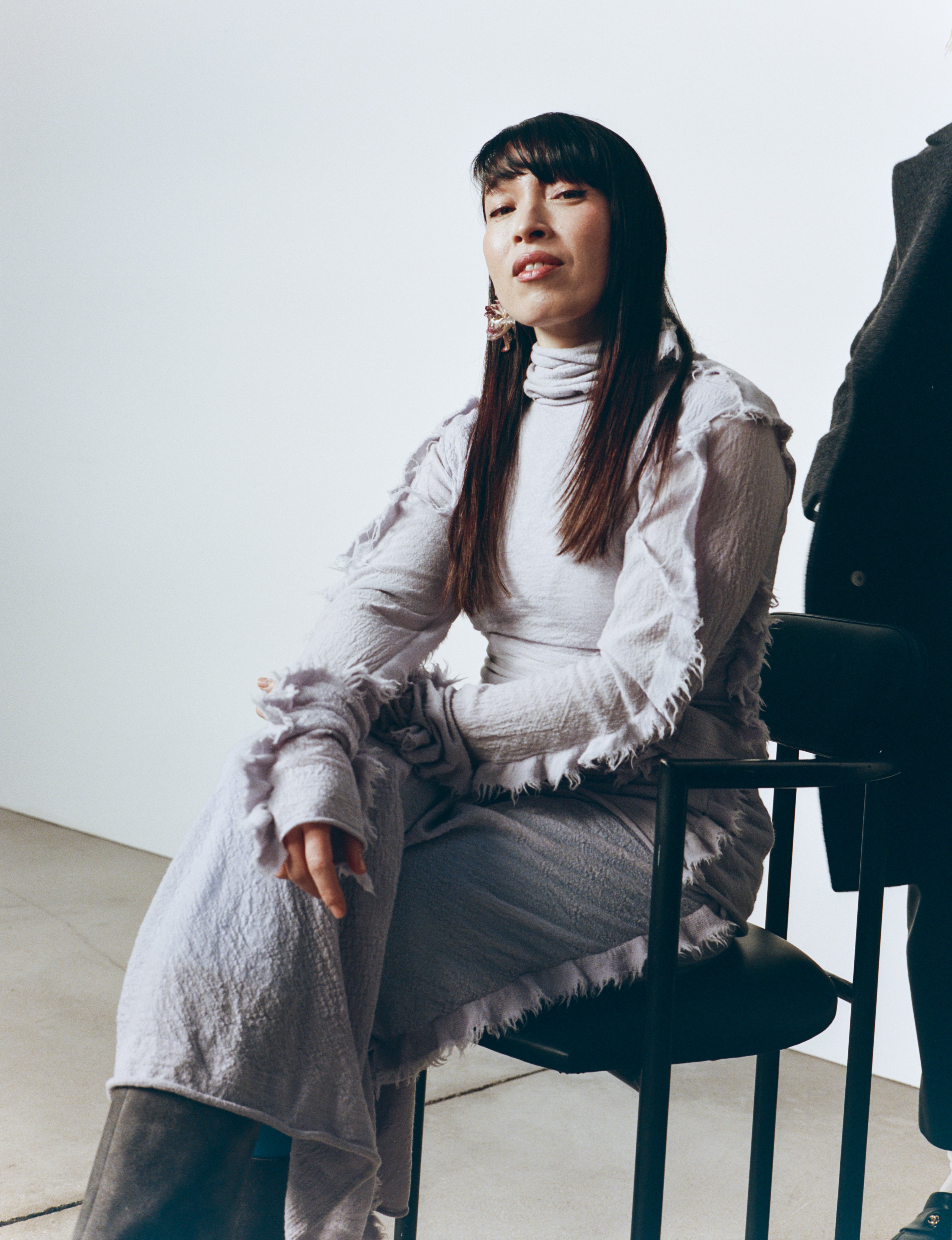
"It was a bit of a chance, because I had to believe in this, and I kept trying to push them into my own thing. And suddenly, when I got that belief from a label, I believed in it even more because it wasn't just about chasing that song or whatever it was that they felt that I needed, that was missing."
What would you say “taking a chance” sounds like?
Yukimi – Spontaneously, what I think of is a kind of leaning into life. It's what I think of. It’s like having your eyes closed and jumping back waiting for something to catch you.
Angèle – I was going to say jump also.
Yukimi – Having some kind of a faith in that something will catch you and that there is some kind of a plan there. So, I guess flying.
Angèle – I see it as jumping into the unknown. You have an idea of what to expect. You never really know how things are going to go. So, you take the chance to put yourself in a vulnerable position and by creating a safe zone. It’s important to be sure that you're very well aligned with yourself, the people that you work with, and that the people in your family are like good support. Then you can jump with your eyes closed and know that you know you will have support, and that you're also supporting yourself.
Neneh – Taking a chance, to me sounds like a really good beat. [laughs].
Solange – 808s [laughs]
Neneh – Sometimes when you’re just dangling on the edge and then the beat drops, and you're just [stomps] fine. I think so much of my courage has come through sound. I started going to sound systems when I first moved to London. Soundsystem culture was really my big discovery. Going in and hearing these masters of sound, like Jah Shaka or Stereograph sound system. It gave me courage. It made me feel I could go anywhere. But the sound can also be very gentle. Sometimes it needs to be completely the opposite. It doesn't have to be the things that make us brave.
Solange – I think taking a chance for me is embracing the fear of the unknown. I used to be really afraid of the unknown, death, silence. All of these things where I had to really confront my mortality or the afterlife or the supernatural. I think that came from a place of wanting to control. Over time I've been able to embrace taking the chance of being present in the unknown and allowing it to guide me into the next chapter of my work. I think about composing for the ballet, and them [The New York City Ballet] telling me it needs to be 14 minutes. To me, that was like such a lengthy piece of music where there were no vocals involved or melodies coming from the voice. I sort of just let my intuition guide me through that process. And sonically, the fear of the unknown has so many twists and turns outside of what I imagine it to be initially. That’s really special. When I'm producing a track, there is a little bit of structure there, whether it be a click track or something that grounds it like a melody. And that was really nice to just live in the spontaneous journey of the song, guiding me, and not me guiding the song.
Neneh – Trusting in your intuition is a really powerful relationship because fear is so paralyzing. I've also struggled with horrible catastrophizing and just general fear of a lot of things. Having a respect for whatever that means, but also being able to surrender to that place of trust where you're okay with the fact that there are certain things in this universe that you can't and will never have control over. You will never have control over those things, so, you just have to somehow surrender to that.
Solange – That is a word.
Discover the rest of the story
About chanel
Chanel is a private company and a world leader in creating, developing, manufacturing and distributing luxury products. Founded by Gabrielle Chanel at the beginning of the last century, Chanel offers a broad range of high-end creations, including Ready-to-Wear, Leather Goods, Fashion Accessories, Eyewear, Fragrances, Makeup, Skincare, Jewellery and Watches. Chanel is also renowned for its Haute Couture collections, presented twice yearly in Paris, and for having acquired a large number of specialized suppliers, collectively known as the Métiers d’Art. Chanel is dedicated to ultimate luxury and to the highest level of craftsmanship. It is a brand whose core values remain historically grounded on exceptional creation. As such, Chanel promotes culture, art, creativity and “savoir-faire” throughout the world, and invests significantly in people, R&D, sustainable development and innovation. At the end of 2023 Chanel employed more than 36,500 people worldwide.

